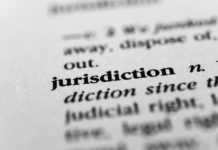Sections 57 & 62 interpreted
High Court. Must it be accepted that, "if a visa applicant is unresponsive, there may come a point in time where it is reasonable for a decision‑maker to exercise the discretion under s 62 of the Migration Act and make a decision to refuse to grant a visa"? If so, could a reasonable decision-maker "have decided that that point had been reached when the plaintiff had obviously misunderstood what was being offered to her and no one attempted to correct her misunderstanding"?
Can Federal Court review its own decisions otherwise than on appeal?
Federal Court (Full Court). Does it follow from the failure to reference certiorari in s 39B of the Judiciary Act, that [the Federal Court] lacks jurisdiction to grant relief of that character, the effect of which is to quash an impugned decision"? Can it be said that the Federal Court "has jurisdiction (not by way of an appeal regularly brought) to review decisions made by its judges"?
Can Minister attribute weight to community expectations without explanation?
Federal Court. If the Minister finds under s 501CA(4) that "the broader Australian community’s general expectations about non-citizens, as articulated in [Direction 90], apply in this case", but then, "without any explanation and before anything else ... immediately states that he “attributed this consideration significant weight against revocation of the cancellation of [the Applicant's] visa”", will he fail to intellectually engaged with the question of the weight to ascribe to those expectations?
Witness’ remaining evidence consciously or subconsciously affected?
Federal Court. Can it be said that, "once a view is taken that a witness has been untruthful in one respect, it can and often does affect, consciously or subconsciously, the assessment of the witness’s remaining evidence, whether that other evidence was given before or after the supposedly untruthful evidence"?
Section 362B interpreted
Federal Court. Can it be said that ss 362B(1A), (1B), (1C), (1D), (1E), (1F) and (1G) of the Migration Act 1958 (Cth) "are not an exhaustive statement of the steps the Tribunal might take in circumstances of non-appearance at a hearing as s 362B expressly preserves by s 362B(2) the power of the Tribunal to make a decision to reschedule the applicant’s appearance before it or to delay its decision on the review in order to enable the applicant to appear before it at a rescheduled hearing"?
Does s 198AD(2) apply to a person the subject of favourable decision under s...
Federal Court (Full Court). Does s 198AD(2) of the Migration Act 1958 (Cth) apply to a person who has been the subject of a favourable decision under s 46A(2)? Can a court "completely remove the capacity of those legally responsible for the detention of an individual to determine where that individual should be held"?
“I don’t remember”: an improper answer?
Federal Court. Is it "appropriate to use the shell of an old action to commence fresh proceedings including against a new party when that proceeding has been resolved"? Were answers in the form of "I don't remember" to an interrogatory administered to the Minister improper?
FCA’s jurisdiction for false imprisonment extended to other claims?
Federal Court (FCA). If the FCA has jurisdiction to determine a claim for damages for false imprisonment and habeas corpus on the basis that the Respondent failed to remove the Applicant from Australia as mandated by s 198, does 476A exclude the FCA's jurisdiction to entertain the Applicant’s claims for injunctive relief requiring the Respondent to discharge its duty under s 198 or to declare that the Respondent failed to comply with that duty? Can the FCA issue a peremptory writ of mandamus?
Appeal: family violence: must relationship be genuine?
Federal Court (Full Court). Where the Tribunal finds that no marital or de facto relationship as defined in ss 5F and 5CB of the Migration Act 1958 (Cth) existed at any time, is the consequence that the question of family violence for the purpose of cl 100.221(4) of Schedule 2 to the Migration Regulations 1994 (Cth) does not arise for consideration, contrary to El Jejieh?
FCC ex tempore reasons to be scrutinised with an eye for jurisdictional error?
Federal Court (Full Court). For the purpose of identifying jurisdictional error, are ex tempore reasons for judgement delivered by the Federal Circuit Court to be "scrutinised narrowly and with an eye for error"? Can it be said that "statements may be made in reasons which, in isolation, appear to be expressed at the level of principle but, in fact, have been applied in a more nuanced and fact-specific context"?





















